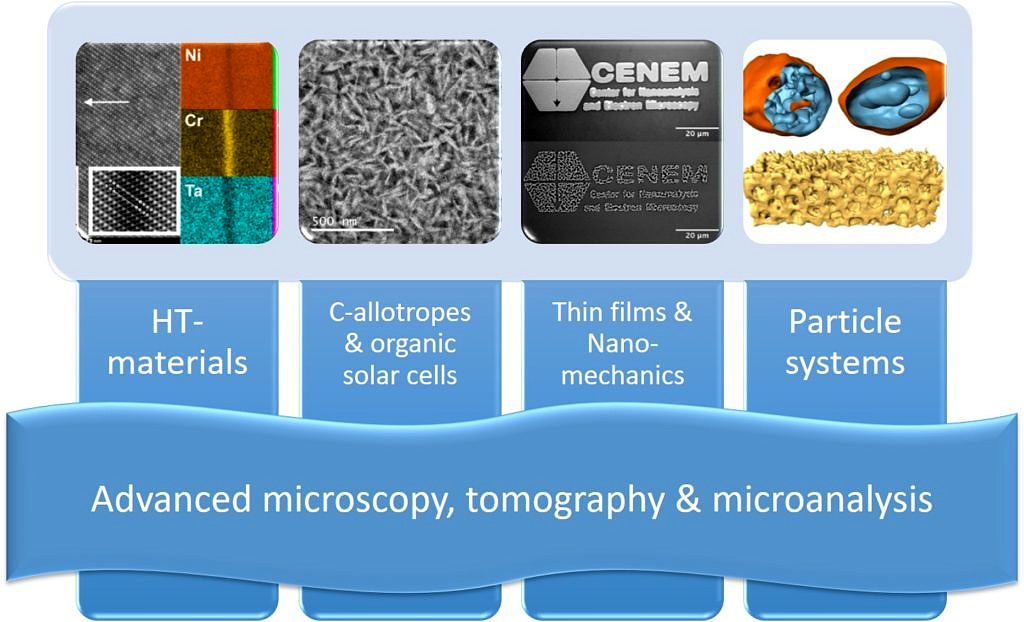
Founded on the backbone of advanced electron microscopy as well as optical and X-ray microscopy/tomography, our institute focuses our research on four main categories of materials:
- High temperature materials, especially superalloys. This area is funded by the German Research Foundation (Deutsche Forschungsgemeinschaft, DFG) within the long-term project Collaborative Research Center (CRC, German: SFB) Transregio 103 “From atoms to turbine blades – a scientific basis for a new generation of single crystal superalloys”, which is now under review to transit to its third funding period. Over the last decade, our institute has made important contributions in the field of fundamental research on superalloys using advanced high resolution and analytical microscopy techniques.
- Thin film systems and nano-mechanics. This area is mainly funded by the DFG through the Research Training Group (GRK) 1896 “In situ Microscopy with Electrons, X-rays and Scanning Probes”, which is already running in its second funding period. Not only dozens of early stage researchers successfully completed their PhD since the beginning of the GRK in 2012, but also experienced researchers on the PostDoc level benefited from the unique environment of highly motivated researchers and state-of-the-art in situ facilities enabling cutting-edge research.
- Carbon allotropes and organic solar cells. This area is mainly funded by the DFG within SFB 953 “Synthetic Carbon Allotropes”, which is currently under review to continue to its third funding phase. Within the framework of this collaborative research approach in the past decade, our expertise and innovations in high resolution and in situ microscopy have contributed greatly to a deeper understanding of defect structures and properties in (few layer) graphene and to the inter-relation between processing, nanomorphology and performance of organic solar cells.
- Nanoparticulate structures and porous materials. This broad research field is partly funded by the follow-up institution at FAU of the DFG Cluster of Excellence EXC 315 “Engineering of Advanced Materials” . Moreover, this research area is funded by the DFG within SFB1141 “Design of Particulate Products”, as well as SFB1452 “Catalysis at liquid interfaces”. Both SFB1141 (start 01/2020) and SFB1452 (start 01/2021) are now in their first funding period. Within these projects, we have built up a remarkable track record throughout the last years especially in the field of nano-tomography including Nano-CT, electron tomography and FIB/SEM tomography, since these 3D imaging techniques are often indispensable to unravel important properties of the studied class of material.
- Computational Microscopy. The Pelz Lab develops computational methods to enable new capabilities in microscopy by jointly optimizing experimental design and reconstruction algorithms. A focus is on multidimensional imaging and inverse problems that incorporate physical effects such as wave propagation, diffraction, and coherence. We use algorithms of nonlinear non-convex optimization and machine learning.

